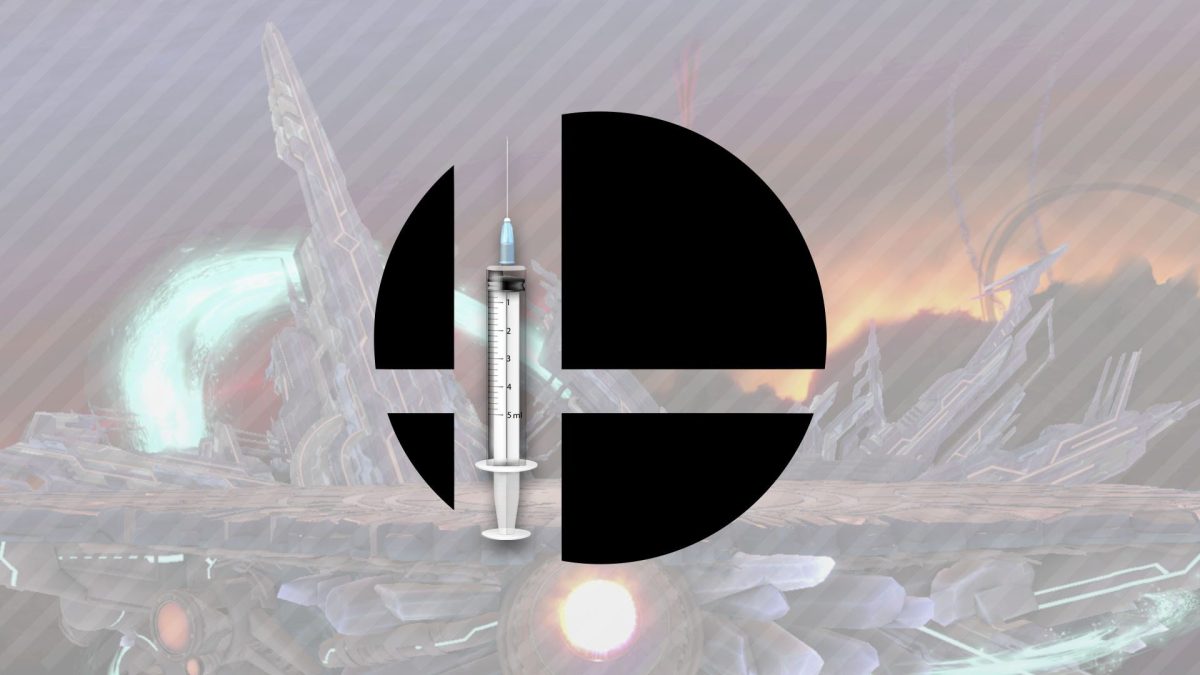Luis “LemonTea” Rojas was outnumbered and on his own. His partner Chris “Jut” Atalaya had fallen earlier in a doubles set of Super Smash Bros. Ultimate.
The commentators and crowd quickly counted the round as a win for LemonTea’s opponents, but the New Jersey native wasn’t going to go down without a fight at his first major tournament.
His Wolf bobbed, weaved and threaded its way between Joker and Mario, landing jabs when it could. This reminded LemonTea of when he goofed off with Jut, relieving any tension that may have been in his shoulders as he leaned forward on the main stage.
A sudden up-smash took Joker out, leaving only the chubby plumber.
LemonTea didn’t notice the dozens of people that had gathered around the stage at the Kalahari Resorts Sandusky in Ohio, in the late morning of Sept. 10, 2021. All energy was focused on him, as an underdog on the brink of victory. One back-air exchange went the wrong way for Josue “Vemnzr” Reyes and the game was over.
The comeback was complete. A cheer rolled up from the crowd like a wave just before it crashes on the shoreline.
“The electricity that that small moment sent through my body made me realize we’re back,” Riptide tournament organizer Joshua “Jaaahsh” Marcotte said. “‘We’re home. This is where we’re meant to be.’”
A moment that was a year and a half delayed
The home of LemonTea’s incredible comeback, Riptide, was the first in-person major since March of 2020. Three thousand attendees filled the resort with GameCube controllers and cloth masks as they brought their competitive hobby back from the pits of online play.
“I felt pretty comfortable knowing most of the attendees [were] vaccinated,” LemonTea said. “Smash events have been one of the safest environments I’ve been in since the pandemic.”
Like the rest of the world, the competitive Super Smash Bros. community came to a standstill as a result of the COVID-19 pandemic in early 2020. While the Smash community has hosted dozens of local, regional and major tournaments since, the ongoing pandemic and recent emergence of the Omicron variant of COVID-19 has forced the Smash community to reevaluate what it means to host tournaments safely.

“There were a couple times when large crowds formed around hype sets and it started to feel a little bit claustrophobic,” said Super Smash Bros. organizer, player and coach Ryan “L4st” Krichbaum. “However, 99% of the time, event staff did a great job of quickly breaking up the crowd, or at least dispersing them to the point where people weren’t packed shoulder to shoulder.”
Organizers have been strict about making sure attendees follow COVID-19 protocols, even when local governments are far more relaxed when dealing with the pandemic. Major events have required temperature checks, and tournaments have been flooded with hand sanitizing stations and masks.
Despite these challenges, the ongoing Smash World Tour and a recently announced Nintendo-sponsored Panda Global circuit have the potential to shape the future of the competitive scene.
This year has been less about picking up where Smash left off in 2020 and more about paving a new way forward.
A community pushed apart by the pandemic
In March of 2020, Cyrus “Cagt” Gharakhanian helped run the Smash Ultimate bracket at CEO Dreamland. Amidst rising COVID-19 concerns, numerous players opted to drop out of the event, including top competitors like Enrique “Maister” Hernández Solís and Jeffrey “Axe” Williamson.
In fact, so many players requested refunds that Head Event Organizer Alex Jebailey set up a PayPal account to raise funds to cover the costs of the tournament.
Cagt, Jebailey and the rest of the CEO Dreamland team worked hard to put together an event for the players who chose to attend, recognizing that it would likely be the last Smash major for the foreseeable future.
“We basically made the best of it and thought, ‘You know what? If this is going to be the last event for a while, let’s make it a good one,’” Cagt said.
One by one, major organizers announced that the pandemic would prevent them from running their events. Some tournaments were outright canceled, including Super Smash Con, Shine and Riptide — the first iteration of which had been scheduled for September of 2020.
“We were all so anxious and fearful and nervous about the health of everyone around us,” Jaaahsh said. “I think canceling it made a lot of sense.”
Other offline majors were postponed multiple times. Ultimately, none of them actually took place in 2020.
“I was in a state of shock,” Super Smash Bros. caster Phil “EE” Visu said. “Then as the months rolled on, I just kind of got used to it. But it did build anticipation. I knew when events finally came back, it was going to be ridiculous.”
Most Melee and Ultimate players didn’t want to stop competing altogether. While both games lacked an efficient or fair way to play online, tournament organizers did whatever they could to make sure hungry players had something to satisfy their appetite with. Little did they know that one modification would change the community forever.












Published: Dec 16, 2021 05:00 pm